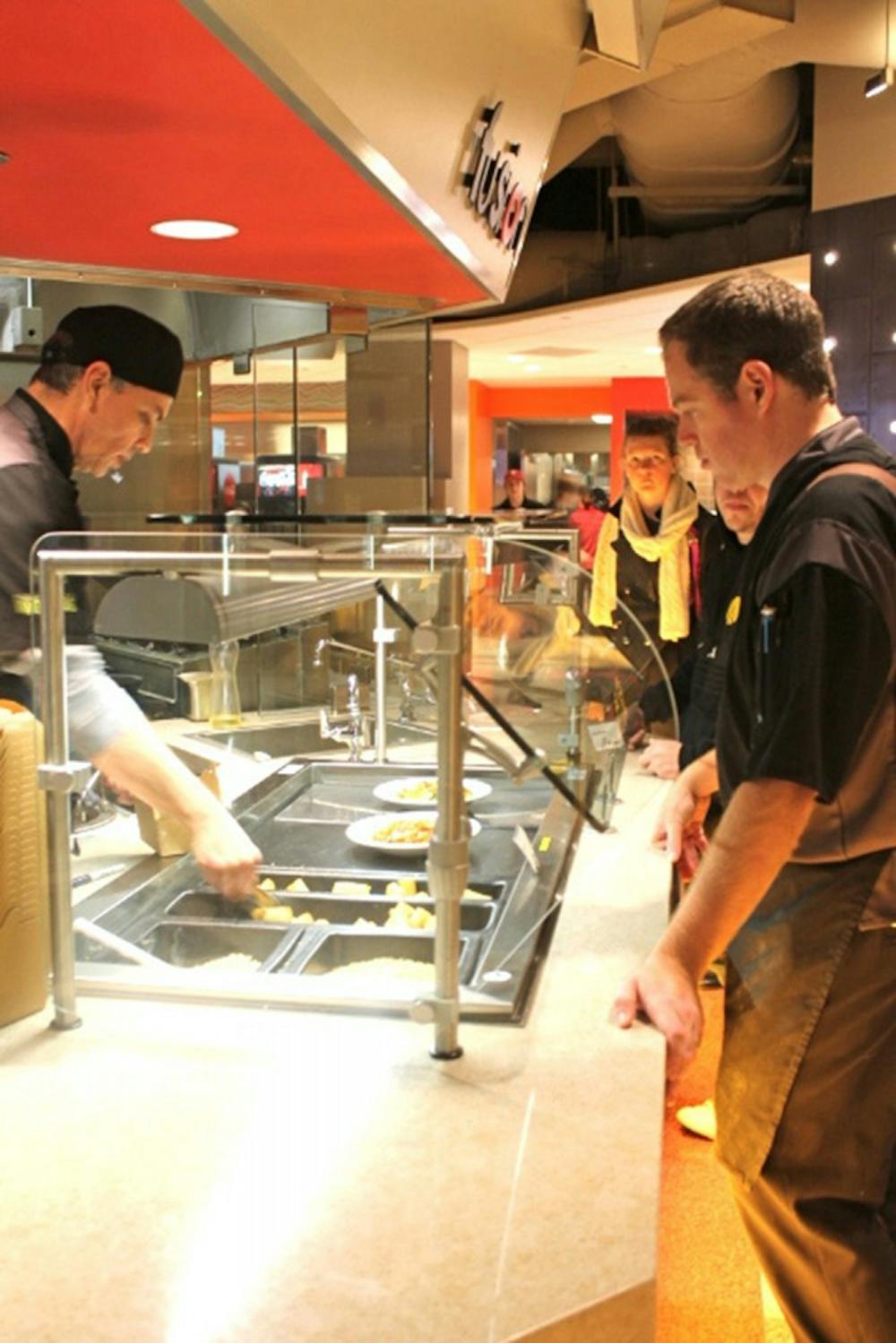The Graduate and Professional Student Government assembly focused on food access during their meeting Friday afternoon, including support of the Real Food Challenge.
The Health and Wellness committee brought two resolutions to the floor, presented by committee chair Blake Forland.
Forland brought forward a resolution that would solidify GPSG’s support for the Real Food Challenge, a nationwide effort to provide healthier food options on college campuses.
According to the Real Food Challenge website, 40 universities across the country have committed to making 20 percent or more of food served on campus real food by 2020. The challenge defines real food as food that is locally grown, fair, ecologically sound and humane.
The resolution would compel IU President Michael McRobbie and Provost Lauren Robel to sign the Real Food Challenge Commitment. It would also compel them to work toward making 20 percent of IU’s food real by 2020.
The Real Food Challenge also includes the Real Food Calculator, a tool that allows students to track their university’s food spending and calculate the percentage that is real.
Forland stressed that for the administration to sign onto the challenge, students would have to make it clear they are in favor of the movement.
“The signing of this challenge in the spring is contingent on student support,” he said.
Some representatives worried that the wording of the challenge sounded elitist to students who can’t afford expensive organic food, especially following a resolution encouraging support of the Crimson Cupboard.
Others compared the financial cost to the physical cost.
“The problem with cost is very understandable, but we need to think about the cost of eating food that’s hurting us,” said Naomi Byerley, a representative from the School of Public Health. “When we support local growers and local vendors that are working within the bounds of the seasons here, that is cheaper than food that isn’t locally sourced.”
Other representatives were concerned that the resolution didn’t have a concrete plan of action and would only ask the administration to sign onto the challenge.
“I think that this resolution, if presented to the provost, will not yield a result that’s actually meaningful,” said Megan Rohlfing, a representative from the School of Public and Environmental Affairs.
“I feel that there should be a part two, where we say, ‘Listen: commit.’”
Other representatives felt that passing bills that would not see a result was a waste of time as a legislative body.
“Why are there not consequences?” said Shadia Siliman, a representative from the Department of Gender Studies. “Why are we not using ourselves as a body to accomplish things?”
After some discussion, the bill was tabled for voting at a later date after representatives agreed that they did not have enough information on the Real Food Challenge or its goals to vote either way and that a plan of action should be written into the resolution.
The other Health and Wellness bill urged GPSG members to donate to and volunteer at the Crimson Cupboard, a food bank exclusively for students, and to raise awareness of food insecurity on campus.
Forland announced that all members of the Health and Wellness committee had committed to volunteering at the Crimson Cupboard for at least one day next semester.
The bill passed unanimously with little discussion.




